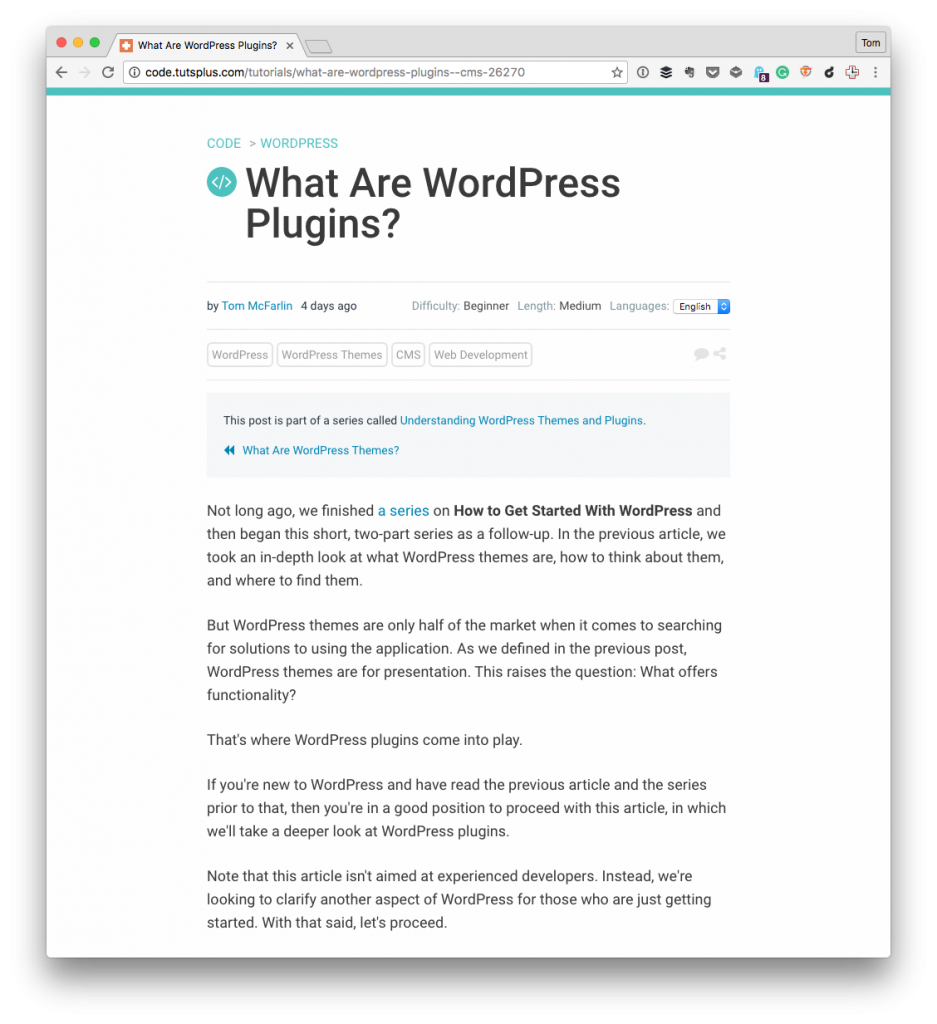For those who work with WordPress on a daily basis, the ideas of WordPress themes, WordPress plugins, and other WordPress-related topics become second nature.
As is the case with anything any of us do on a regular basis.
Anyway, when there are others who are interested in getting started with WordPress either as content managers, bloggers, or developers, there's a lot to learn. And sometimes, when we talk about WordPress plugins in blog posts, WordCamp presentations, and podcasts, we assume that the audience already has some understanding of the words we're using.
But that's not always the case. Some time ago, I started a series for Envato on Understanding WordPress Themes and Plugins.
Recently, the second portion of the series ran in which I talk about WordPress plugins specifically targeting those who are looking to have a greater understanding of what they are, how they work, and how they fit into the overall WordPress economy.
As outlined above and in the article:
Note that this article isn't aimed at experienced developers. Instead, we're looking to clarify another aspect of WordPress for those who are just getting started.
So if you're an experienced user or developer, then this is likely not something you'd be interested in checking out.

The article is set up to give a high-level definition of plugins as well as a more nuanced exploration of how they fit into the WordPress economy.
I also touch on the following points:
I also mention a few things about the importance of separating presentation and functionality as it relates to themes and plugins, and how those who may not be familiar will often find functionality built-into plugins that might be better served as plugins.
Specifically, I mention:
if you're looking to get started with WordPress development in a professional capacity, I highly recommend keeping the concerns of each separate. This will go a long way in making sure that you not only reach a target audience, but also have yourself set up to more easily maintain your projects.
So if you're new to WordPress, interested in theme development, plugin development, or simply gaining a greater understanding of how all of the parts fit together, then feel free to check out this article (or the first article that examines WordPress themes).
Related
Source: What Are WordPress Plugins, Anyway?
No comments:
Post a Comment